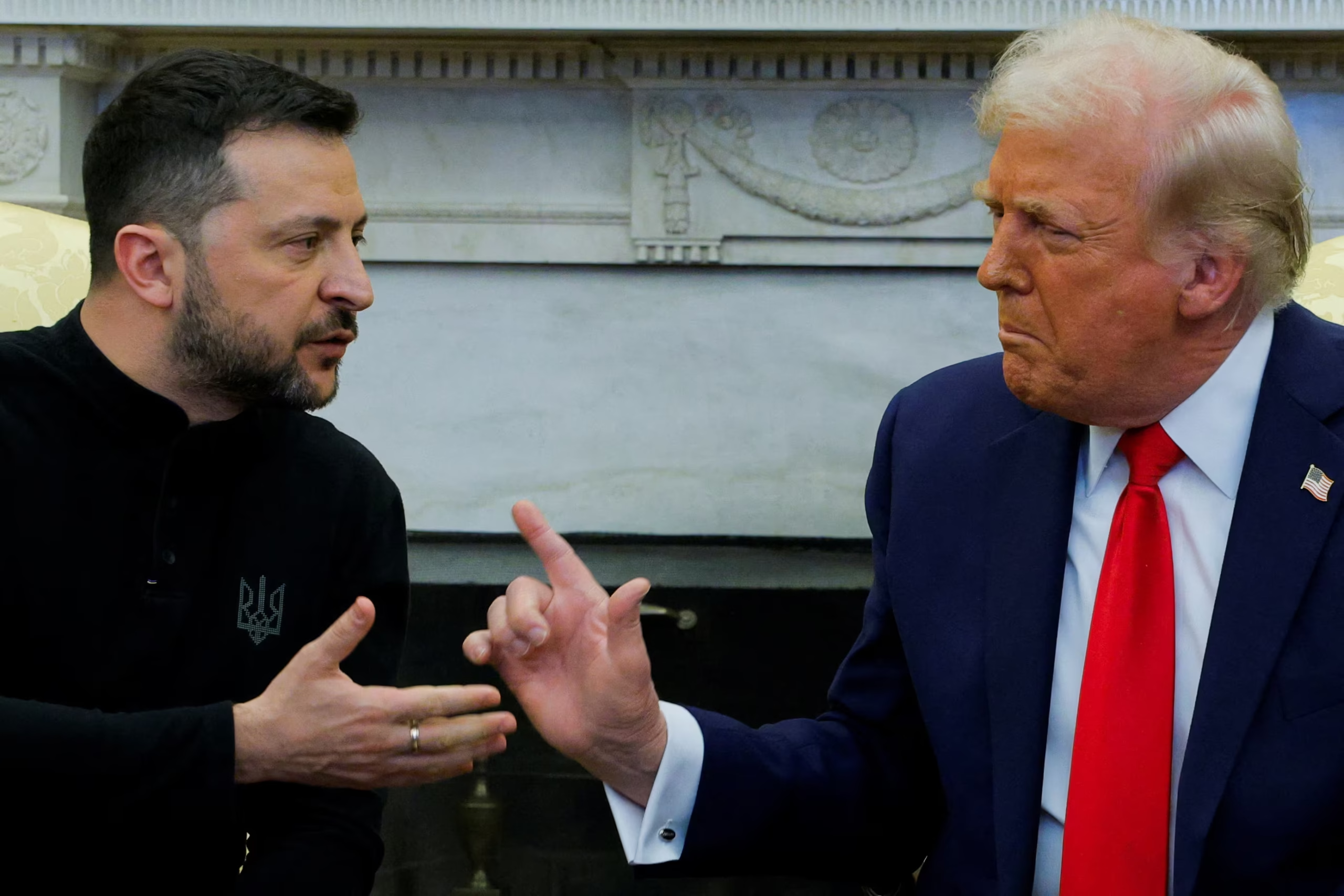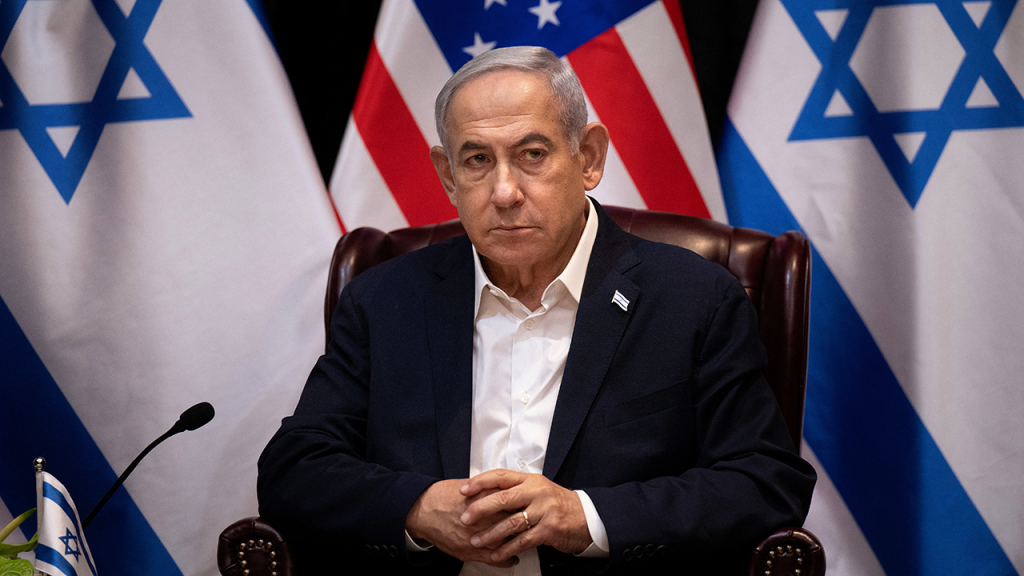By Bafana Phalane
In recent months, tensions have emerged between the United States and its European allies, particularly surrounding the leadership of President Donald Trump and Vice President JD Vance. A high-profile confrontation between President Trump and Ukrainian President Volodymyr Zelensky at the White House marked a pivotal moment in this growing divide. The exchange, which became both uncomfortable and awkward for Zelensky, raised significant questions about the future of U.S. foreign policy, particularly regarding support for Ukraine, NATO, and the broader transatlantic alliance.
President Trump’s comments and Vice President Vance’s actions have sparked widespread debate and criticism, especially as they suggest a new direction for U.S. foreign policy that contrasts sharply with long-established norms. This shift has the potential to not only disrupt U.S.-European relations but also redefine the geopolitical landscape in the coming years.
During a tense meeting at the White House, President Trump made it clear that his administration’s stance on Ukraine would not be as unwavering as that of his predecessors. In a striking moment, he told President Zelensky, “Make a deal with Russia or we are out.” This statement left many stunned, as it seemed to signal Trump’s willingness to prioritize American interests over the defense of Ukraine’s sovereignty. His remark reflected a departure from the U.S. policy of firm support for Ukraine, which had been maintained under previous administrations, both Democrat and Republican.
What followed only intensified the awkwardness of the situation. Vice President JD Vance, who has been a strong ally of Trump, also took the opportunity to publicly attack Zelensky. Vance’s tone was sharply critical of the Ukrainian president, questioning his leadership and the media team joined and mocked him for his appearance and attire. This ridicule was seen by many as unprofessional and disrespectful, especially given the dire situation in Ukraine as it continues to fend off Russian aggression.
The incident left Zelensky visibly uncomfortable and embarrassed, further complicating the image of the U.S. as a leader in global diplomacy. While Trump’s foreign policy has often been marked by bold and unconventional moves, this exchange raised concerns about the level of respect and support the U.S. is willing to extend to Ukraine, which has been fighting for its survival against Russian forces since 2022.
The U.S.-Ukraine tensions were further exacerbated by Vice President Vance’s remarks at the Munich Security Conference in mid-February. In a speech that raised eyebrows across Europe, Vance criticized what he saw as “totalitarianism” within Europe but notably did not direct his ire at Russia. Instead, Vance focused on European Union countries that had supported Ukraine in its war with Russia. He accused these European nations of suppressing dissent and being fearful of their own populations, using examples such as the imprisonment of political opponents in Hungary and Poland.
Vance’s rhetoric shocked many European leaders, particularly in Germany, where Defense Minister Boris Pistorius responded swiftly, calling Vance’s remarks “unacceptable.” Pistorius emphasized that Germany, along with its European allies, had a strong commitment to defending democracy and human rights. “We know not only against whom we are defending our country, but also for what,” Pistorius stated, defending the EU’s position on the war in Ukraine and its broader commitment to democratic values.
The clash between Vance and European leaders highlights the deepening divide between the U.S. and Europe over the war in Ukraine and broader issues of global governance. While Vance’s criticism focused on Europe’s internal challenges, it ignored the continent’s steadfast commitment to supporting Ukraine’s sovereignty in the face of Russian aggression. This divergence of views has serious implications for the future of U.S.-European relations.
The confrontation between President Trump and President Zelensky, along with Vance’s comments in Munich, form part of a larger trend in U.S. foreign policy that aligns with the geopolitical ambitions of Russian President Vladimir Putin. Trump’s suggestion that the U.S. could withdraw its support for Ukraine if a peace deal with Russia is not reached fits with Putin’s long-standing goal of weakening NATO and undermining the Western alliance system.
For years, Putin has called for a “multipolar” world order, one in which the U.S. and its NATO allies no longer dominate global affairs. Trump’s criticism of NATO and his prioritization of “America First” policies seem to align with this vision. By suggesting that the U.S. could abandon Ukraine, Trump is potentially handing Russia a significant strategic victory, weakening the Western alliance at a time when unity is crucial to deterring further Russian aggression.
This shift in U.S. policy under Trump’s leadership poses a direct challenge to NATO’s role in ensuring European security. For decades, the U.S. has been the leading force within NATO, but Trump’s rhetoric, combined with Vance’s actions, indicates a move away from this traditional stance. This could have serious consequences not only for the security of Europe but for the broader international order, which has largely been shaped by Western democratic values and institutions since the end of World War II.
Central to the dispute between the U.S. and Ukraine is the issue of military aid. Since Russia’s invasion of Ukraine in 2022, the U.S. has provided extensive support to Ukraine, contributing over $100 billion in military and economic aid by February 2025. This support has included advanced weaponry, intelligence sharing, and economic assistance, all crucial to Ukraine’s efforts to defend itself against Russian aggression.
However, President Trump has been consistently critical of such large-scale military commitments. He has questioned whether U.S. taxpayers should continue to foot the bill for Ukraine’s defence, stating that the U.S. must “take care of our own people first.” His isolationist stance reflects his broader skepticism toward foreign intervention, particularly when it conflicts with his domestic priorities. Critics argue that this approach would not only embolden Russia but also undermine the U.S.’s credibility as a global leader and ally.
In contrast, President Zelensky has repeatedly called for continued Western support, particularly in the form of military aid. “Without your help, we cannot win,” Zelensky has emphasized in various speeches, urging the U.S. and its allies to remain committed to Ukraine’s defence, which he sees as essential not just for Ukraine, but for the entire democratic world.
The recent tensions between President Trump, Vice President Vance, and European leaders highlight the growing divergence in transatlantic relations. While Europe remains firm in its support for Ukraine and its commitment to NATO, figures like Trump and Vance represent a shift toward a more nationalistic, isolationist foreign policy. This shift could have profound consequences for the future of the Western alliance, as the U.S. becomes increasingly ambivalent about its role as a global leader.
As Europe continues to face the challenges of Russian aggression and internal political divisions, it is clear that the U.S. plays a central role in determining the course of global security. However, if Trump and Vance’s vision of a “multipolar” world gains further traction, it could signal the end of the post-Cold War era of Western unity and the beginning of a more fragmented and unpredictable global order. If the U.S. steps back from its leadership role, Europe may be forced to take a more independent stance in its dealings with Russia, China, and other global powers.
As this political shift unfolds, the stakes for global security and economic stability have never been higher. The future of NATO, the integrity of Ukraine’s sovereignty, and the broader world order depend on whether the U.S. remains committed to its traditional alliances or follows a new path under Trump and Vance’s leadership. Only time will tell whether the U.S. will continue to support Ukraine and its European allies or abandon its role as a champion of democratic values on the world stage.
Bafana Phalane: Founder & Editor @ Maverick Point








12 thoughts on “Trump’s Geopolitical Gamble: The Western Hegemony Hangs in Balance. ”